Anti-Poaching Campaign Report: Ido Local Government Area, Oyo State, February 2024
In February 2024, the Animal Protection Organization of Nigeria conducted an anti-poaching campaign in the Ido Local Government Area of Oyo State, Nigeria. The campaign focused on engaging community hunters on the importance of wildlife conservation and the consequences of indiscriminate hunting.
Target Audience
The primary target audience for this campaign was community hunters in the Ido Local Government Area. The campaign aimed to raise awareness about the International Union for the Conservation of Nature (IUCN) list of Endangered species and the global hunting ban placed on these animals.
Campaign Activities
- Community Meetings: Meetings were held with community leaders and hunters to discuss the importance of wildlife conservation and the negative impacts of poaching.
- Awareness Presentations: Informative presentations were delivered to educate participants about the IUCN Endangered Species list and the global hunting ban on these animals.
- Focus on Specific Species: The campaign specifically focused on raising awareness about the following IUCN-listed endangered species commonly hunted in the area:
O Pangolins
o Crested Genet
o White-throated Guenon
o Pythons
o Vlei Rats
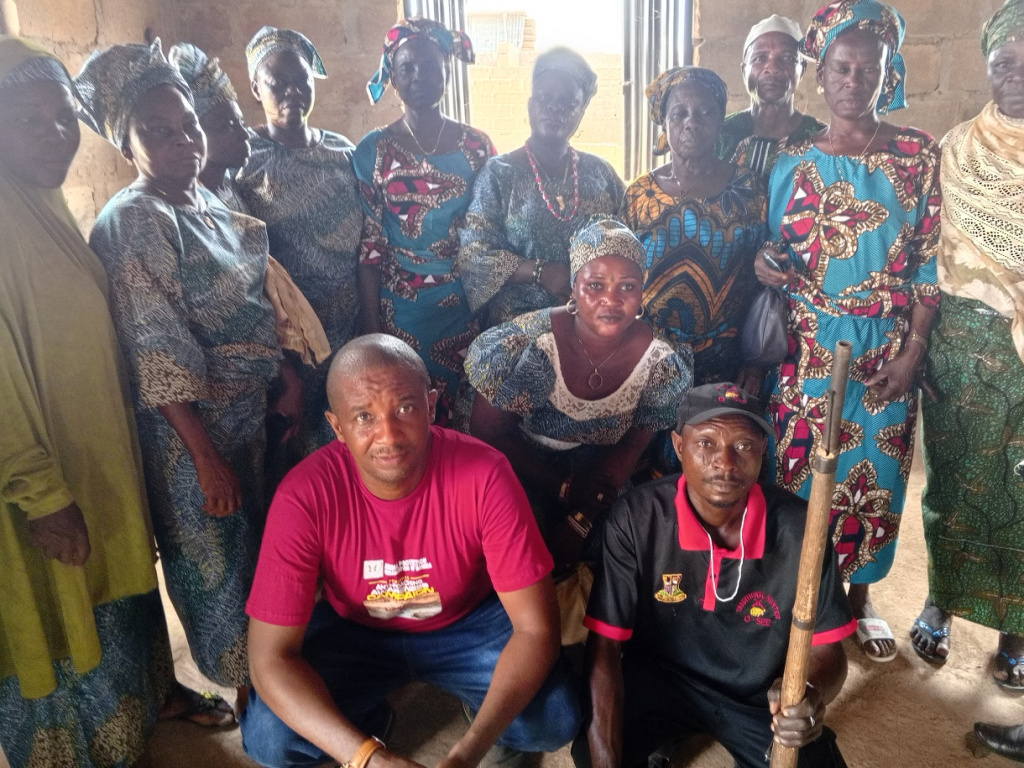
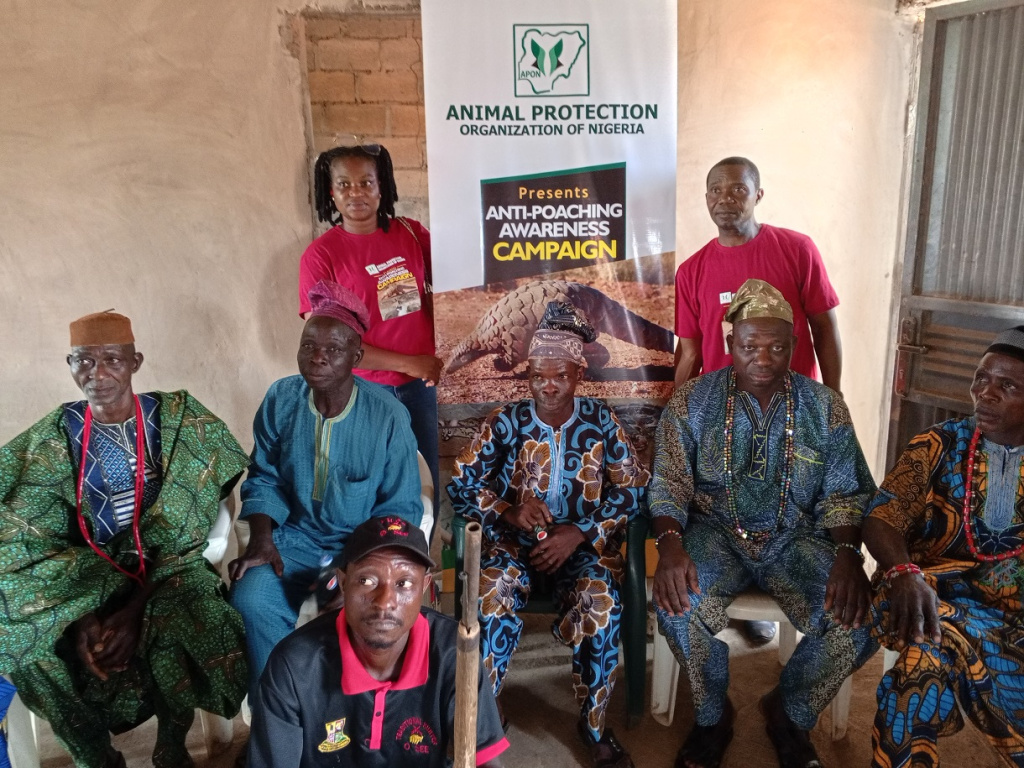
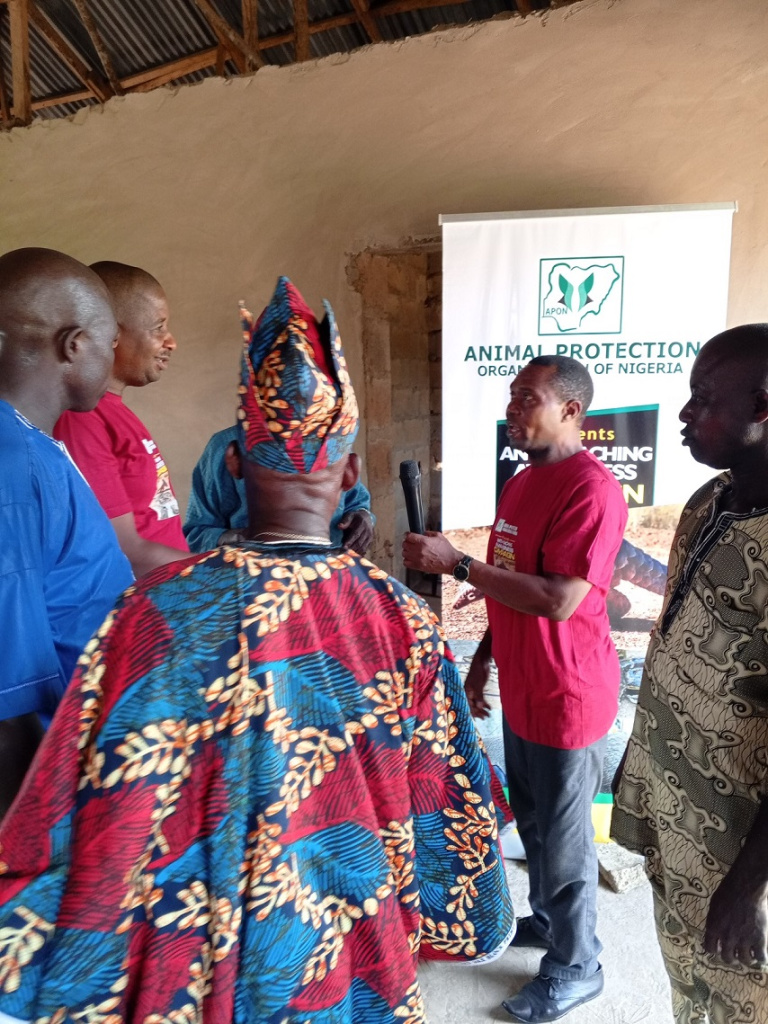
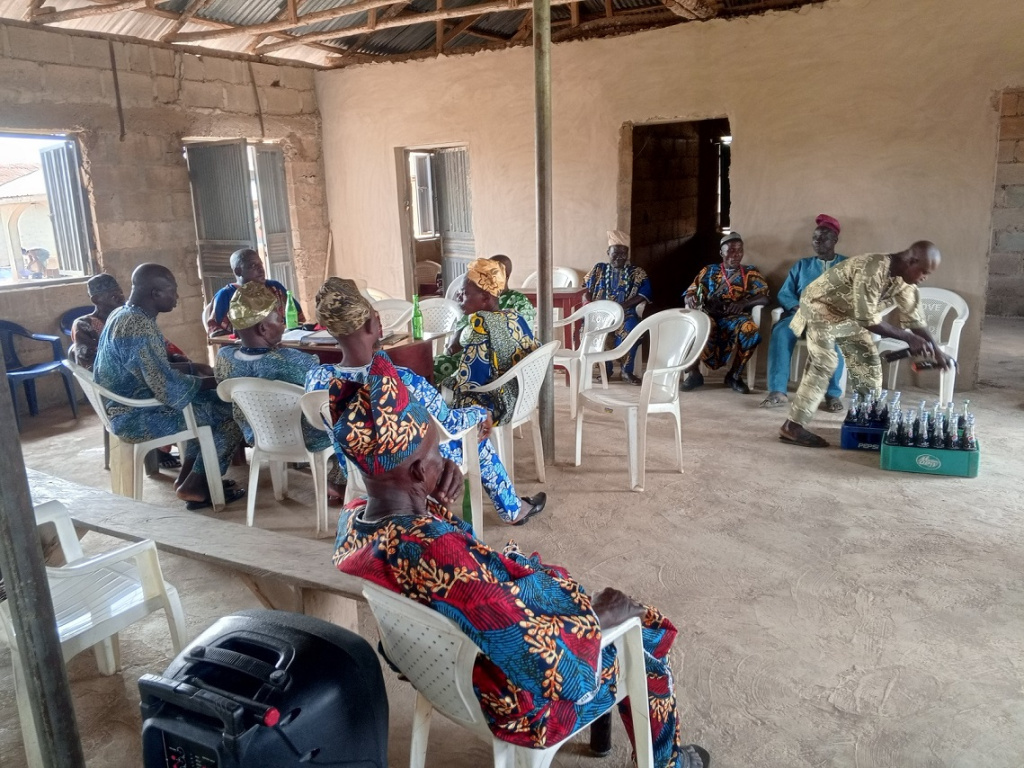
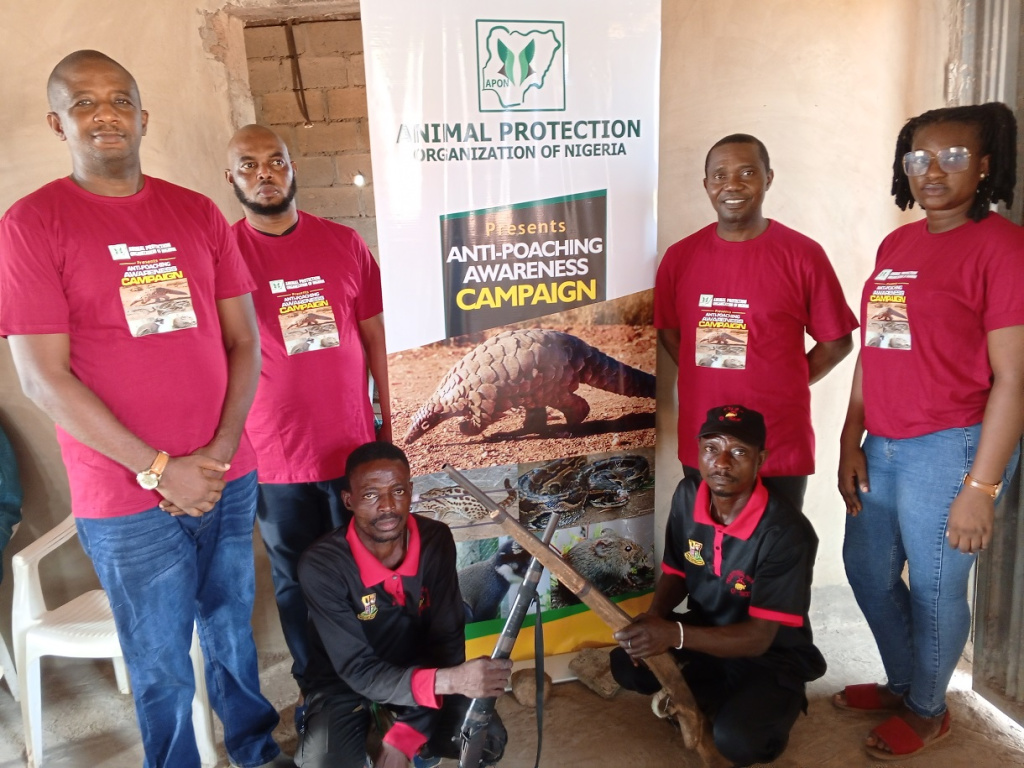
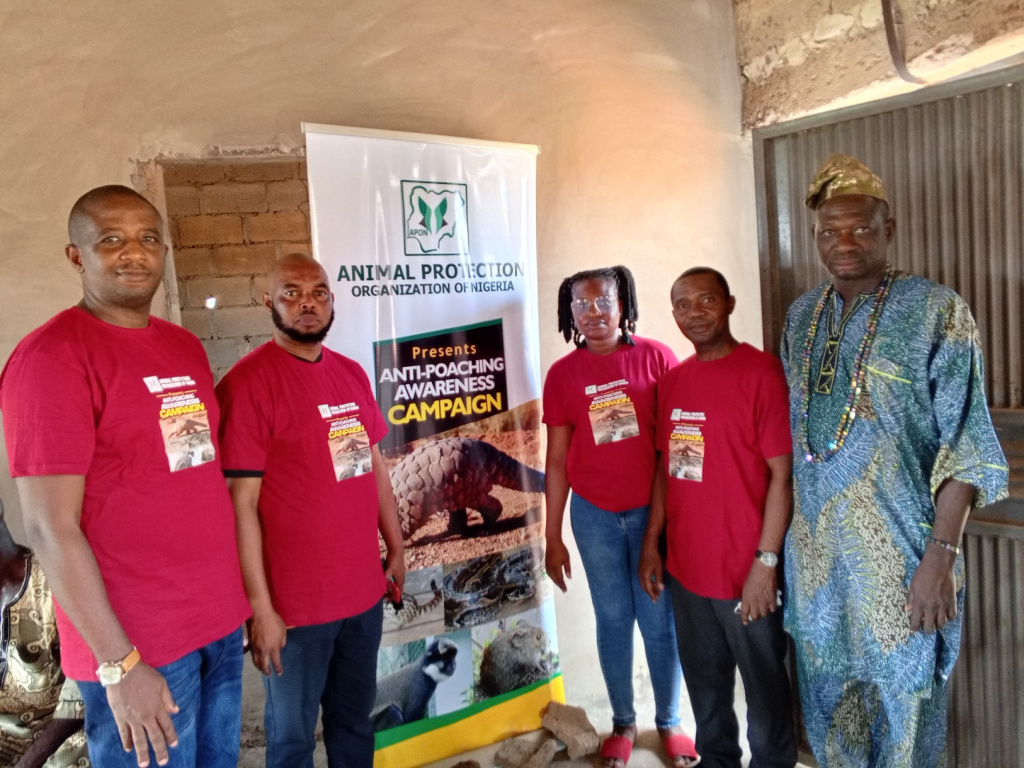
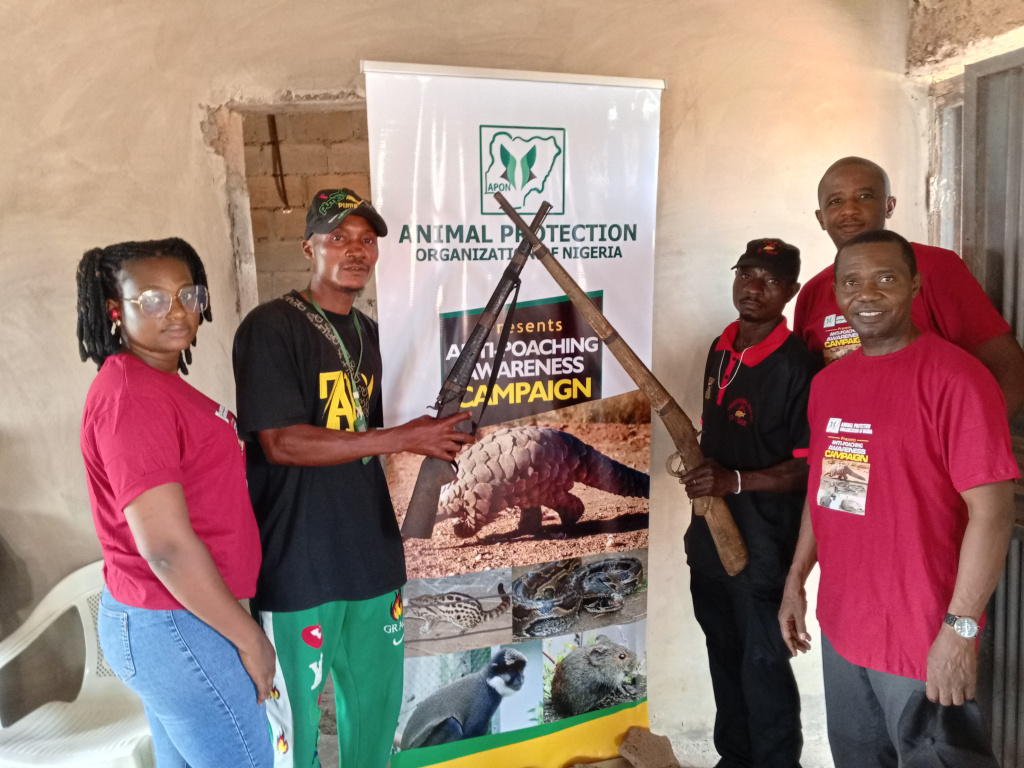
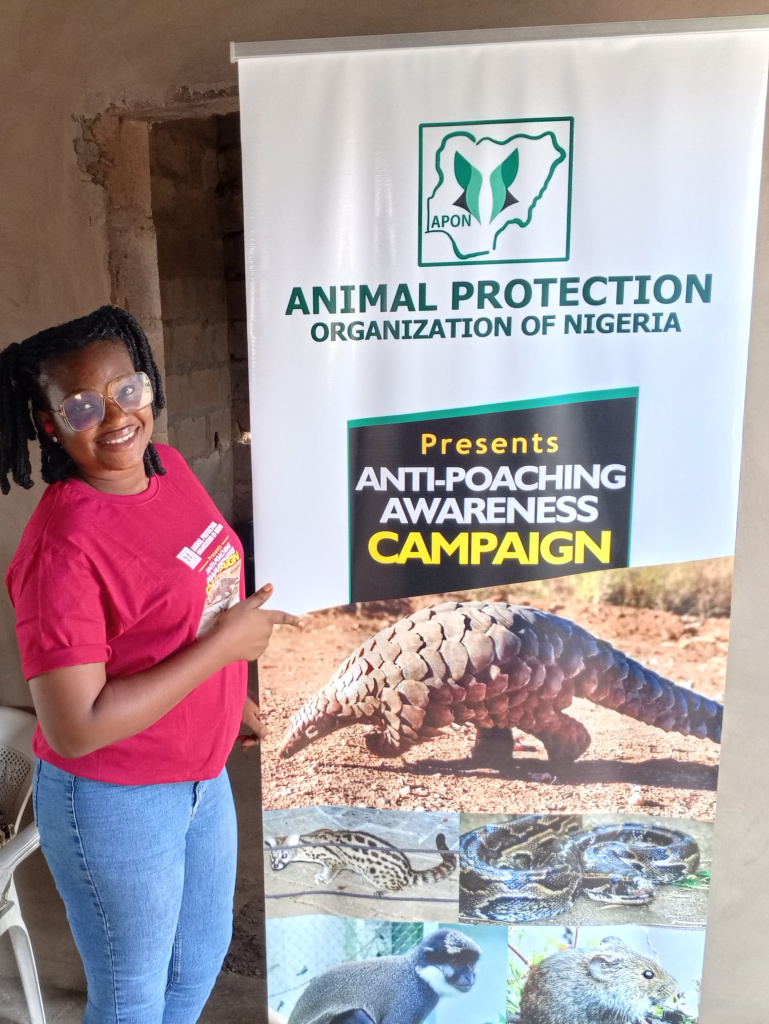
- Impact of Biodiversity Loss: The presentations highlighted the detrimental effects of indiscriminate hunting on the local ecosystem’s biodiversity. The connection between biodiversity loss and the increasing vulnerability of the community to climate change and pollution was emphasized.
- Alternative Livelihoods: Discussions were held to explore alternative livelihood options for community members who rely on hunting for income.
Campaign Materials
- Informative handouts and posters detailing the IUCN Endangered Species list and the legal ramifications of poaching were distributed to participants.
- Visual aids such as pictures were used to showcase the targeted species and the ecological roles they play.
Challenges Encountered
- Livelihood Dependence: Some community members expressed concerns about their ability to support themselves and their families if hunting is restricted.
- Traditional Practices: The campaign acknowledged the cultural significance of hunting in some communities. Open discussions were held to find ways to reconcile traditional practices with sustainable wildlife management.
Short-term Outcomes
- Increased awareness among community hunters about the IUCN Endangered Species list and the global hunting ban.
- Improved understanding of the ecological importance of the targeted species and the negative consequences of indiscriminate hunting.
- Exploration of alternative livelihood options for community members who rely on hunting.
Our Next Steps
APON’s next step is continued collaboration with community leaders and hunters to develop sustainable wildlife management practices. Also, identification and support for alternative livelihood projects for community members, and advocacy for stricter enforcement of anti-poaching laws in the region.
Conclusion
The anti-poaching campaign in the Ido Local Government Area provided a valuable platform to raise awareness about the importance of wildlife conservation. By engaging community hunters and fostering a collaborative approach, the campaign aimed to promote sustainable practices and ensure the protection of endangered species in the region.
The cause has already begun……..
